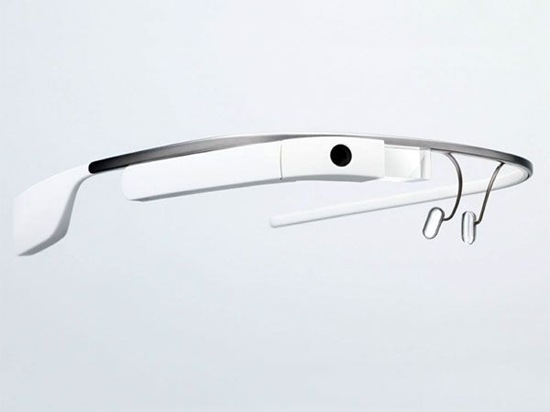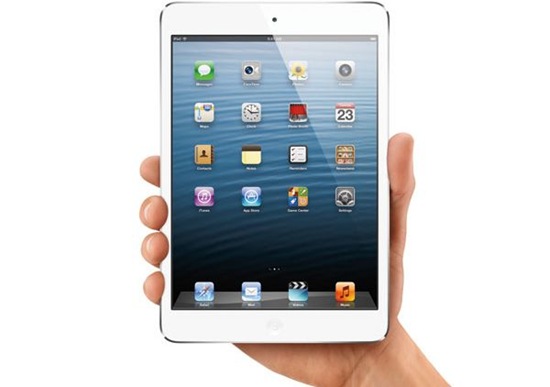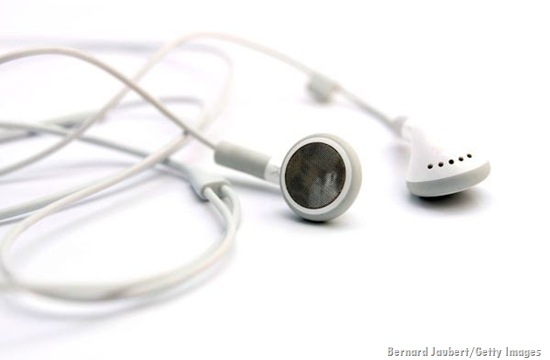
Looking back 30 years or more, these sci-fi authors predicted a dystopian (or, in some cases, a utopian) society. Some of the dialogue seems dated now and the plot devices overly quaint, but these writers nailed a few things.
1. Predicted: Google Glass
Book: Neuromancer, by William Gibson
William Gibson said that the role of science fiction is not to predict the future but to comment on current trends. Nevertheless, he predicted cyberspace, reality television, and hacktivism. His debut novel, 1984's Neuromancer also contained a curious, prescient plot device, which the character Molly uses. "The glasses were surgically inset, sealing her sockets. The silver lenses seemed to grow from smooth pale skin above her cheekbones." Sounds like the potentially disturbing future of Google Glass.
2. Predicted: Apple iPad
Book: 2001: A Space Odyssey, by Arthur C. Clarke
This book from 1968 predicted that we'd all be using a thin tablet computer and reading about the news from around the world. In fact, Arthur C. Clarke nearly used the exact same name that Steve Jobs chose: "Newspad" figures into the 2001 storyline during the initial space flight. In the movie, the device pops up as a portrait monitor (an early screen prototype made by IBM). If you're in a futurist mood, don't miss this eerily accurate video in which Clarke predicts automated mass transit, remote surgery, and more.
3. Predicted: iPad Mini
Book: The Mote in God's Eye, by Larry Niven and Jerry Pournelle
In this somewhat hard-to-find novel from 1974, Larry Niven and Jerry Pournelle predicted what seems like a recent hand-sized Apple tablet. "We envisioned something looking a lot like an iPad Mini with a video camera, sound recorder, and a link to the ship's main library, which was like the cloud and which then linked to the main planetary library, which became a cloud for the ship," Pournelle told PM recently. "Everyone would carry one, and it would be PDA and video telephone and camera." The handheld computer used in the book could also easily stand in for a smartphone.
4. Predicted: World Wide Web
Book: EARTH, by David Brin
Brin's famous book from 1990 has so many accurate predictions that there is now a Web page dedicated to its success rate. One of the most interesting crystal-ball moments occurs almost right away: using the World Wide Web. Other sci-fi books predicted a cyberverse and a vast online data repository, but Brin nailed the concept. "In EARTH, I portrayed my 21st-century characters using screen displays filled with clickable links - in other words, Web pages," Brin told PopMech recently. "As it turned out, Marc Andreeson and Tim Berners-Lee had similar ideas at the same time and were plugging away at changing the real world, making possibilities come true for everybody. By comparison, my accomplishments in predictive fiction seem pretty pale."
5. Predicted: Google
Book: Foundation, by Isaac Asimov
In this seminal work, considered one of the best in sci-fi, Asimov invented the Encyclopedia Galactica. (According to legend, he first thought of the idea in his car on the way to meet with his editor.) The encyclopaedia contains a compendium of all knowledge. That way, a far-future society could use the vast collection of knowledge to rebuild after a galactic collapse. Thousands of researchers worked in isolation collecting this data.
Sound familiar? The Google mission statement is to "organize the world's information and make it universally accessible and useful." Today, when you search on a common term like "human" or "war" you can start clicking through about 2 billion links. You might think of Wikipedia as a better analogue to Asimov's idea, but Google comes closer to the lofty goal of "all knowledge." Google is amassing a highly organized, well-stocked search repository.
6. Predicted: Lexifone App
Book: The Hitchhiker's Guide to the Galaxy, by Douglas Adams
Here's one that seemed impossible back in 1979 but is appearing in many forms today. In this classic of sci-fi comedy, the late Douglas Adams dreamed up the Babel Fish translator. You stick the organic device in your ear, and when an alien speaks, you hear a translation in your mother tongue. Flash forward to about two weeks ago, when the Lexifone app debuted on Android phones. (We know there are many other on-the-fly translators like Ortsbo and Loop, but this one actually works, and it's completely free.) When you speak during a call, the app translates from one language to another. If that's not a Babel Fish, we're not sure what is. (AT&T is developing a similar real-time translator.)
7. Predicted: Earbuds
Book: Fahrenheit 451, by Ray Bradbury
For an entire generation raised on portable MP3 players and smartphones, light and portable ear-buds help us stay mobile. (They are also destroying our hearing.) Ray Bradbury predicted such a listening device in his great 1953 work. He called them a "thimble radio" that had "an electronic ocean of sound, of music and talk" that occupied the listener. Interestingly, the book also mentions a wall of televisions. Oh, and how we would abandon all vestiges of analogue life and embrace a digital dystopia.
Related Links:
Related Posts:
1. 10 Current Technologies Directly Inspired By Science Fiction
2. From Sci-Fi To Reality: The Computer-Blitzing Drone That Can Cripple A Nation's Electronics At The Touch Of A Button
3. 10 Most Promising Up-And-Coming Inventions Inspired By Science Fiction
4. Science Fiction Dreams That Came True In 2012
5. 7 Potential Wonders of the World
6. Top 9 Brain-Controlled Techs
1. 10 Current Technologies Directly Inspired By Science Fiction
2. From Sci-Fi To Reality: The Computer-Blitzing Drone That Can Cripple A Nation's Electronics At The Touch Of A Button
3. 10 Most Promising Up-And-Coming Inventions Inspired By Science Fiction
4. Science Fiction Dreams That Came True In 2012
5. 7 Potential Wonders of the World
6. Top 9 Brain-Controlled Techs







No comments:
Post a Comment
Please adhere to proper blog etiquette when posting your comments. This blog owner will exercise his absolution discretion in allowing or rejecting any comments that are deemed seditious, defamatory, libelous, racist, vulgar, insulting, and other remarks that exhibit similar characteristics. If you insist on using anonymous comments, please write your name or other IDs at the end of your message.